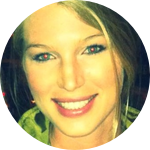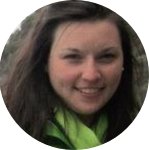About This Project
Better management of type 1 diabetes is moving towards an artificial pancreas. However, we need a better way of monitoring your blood sugar continuously. A promising new technology may be the key to solving our problem: can we use a novel type of electromagnetic sensing to noninvasively measure blood glucose?Ask the Scientists
Join The DiscussionWhat is the context of this research?
The goal of this research project is to answer the question: can we use this novel technology to noninvasively detect blood glucose levels at clinically significant levels?
We will be using a unique electromagnetic (EM) sensing system that measures intrinsic properties of the glucose molecule in the blood. Because changes in blood glucose levels affect these properties, we hypothesize that we can pinpoint this technology to specifically target glucose. We will first conduct tests to detect glucose measurement with this technology, and then test to see if we can distinguish changes in measurement based on different glucose concentrations.
What is the significance of this project?
This technology challenges the status quo of existing measurement practices and advances innovative research in noninvasive glucose sensing. As research moves toward an artificial pancreas, there is an overwhelming need for better glucose sensing systems that make it easier to check your blood sugar. This means developing a system with:
- No lags
- Greater accuracy
- Increased sensor life
- Better ease of use
- Decreased cost and replaceable parts
What are the goals of the project?
1) Perform tests to measure blood glucose using noninvasive sensing system
- Here, we will scan aqueous solutions of glucose to determine if we can find its signal on our EM spectra
- The main goal is to confirm it is glucose we are measuring
- Here, we will scan different glucose concentrations - from 1mg/dL to 400 mg/dL to determine how the signal changes based on different concentrations
- Our main goal is to determine distinguishable changes we can measure with this technology
*Stretch goal funding - see Lab Notes!
Budget
Update! Stretch funds goal:
Our stretch goal expands on our initial budget in that it allows us to run better, more specific tests. Researching with better phantom models (and potentially blood samples if we can afford it) at even more glucose concentrations will allow us to further clarify how specific and sensitive this signal is. This is crucial for getting the technology into clinical testing within a timely manner. Additional info is found in this lab note, and I will be uploading an image shortly! Some additional items include:
- More complex phantom models - $1200
- Real blood samples - $1600
- Engineering parts & components - $1000+
- Use of equipment - $800+
- Signal Processing - $500+
Our Initial Target Budget Overview - $7600
Funds for this project will be spent on equipment and materials for testing the proposed technology. We plan to purchase a development kit and will use phantom models to screen blood samples for clinically relevant glucose concentrations. Funds raised beyond our set goal will be used to further develop the technology for clinical testing.
The minimum cost for this study is $7600. Ideally, we would like to go beyond this initial goal to perform the best experiments possible. This money is being raised through this Experiment project. As shown in the budget breakdown, funds will be spent on purchasing the electromagnetic scanning equipment and modeling software. This computer based modeling system will be used to plug in data obtained from measuring our glucose phantoms. Additional funds will be used to test the technology at a greater spectrum of glucose concentrations with more elaborate models, and allow for better analysis of raw data.
Meet the Team
Team Bio
In 1996, my younger sister was diagnosed with type 1 diabetes. Since then, it has been my goal to cure diabetes. An artificial pancreas and a better way to measure glucose is one step along that road! In summer 2013, my research partner, Kelly, and I were given the opportunity to pursue a radically innovative technology for completely noninvasive glucose sensing after interning at Lawrence Livermore National Laboratory.Our mentors have a background in bioengineering and glucose sensing systems. Much of our prior work focused on evaluating major needs in blood glucose monitoring in people with diabetes to better understand how this technology could be incorporated into an artificial pancreas. This past fall, we successfully completed the National Science Foundation Innovation Corps program at UC Berkeley. Now, realizing the overwhelming need for noninvasive glucose testing, this campaign will allow us to conduct initial research to evaluate our proposed technology.
Laura de Pedis
I have a broad background in biotech research, technology transfer, and type 1 diabetes, as well as the passion, dedication, and leadership to carry out this proposal successfully. At University of California, Santa Barbara, I carried out the research proposal “Activation of STAT3 and STAT6 in Polycystic Kidney Disease,” and graduated with Distinction in the Major for the Molecular, Cell, and Developmental Biology Department. At Georgetown University, I successfully completed all my master's coursework with a perfect 4.0 GPA, and two capstone projects, one at a clinical-stage biotech company and the second at Department of Energy's Lawrence Livermore National Laboratory. At LLNL, I worked in the tech transfer office, Industrial Partnerships Office, focusing on evaluating the market potential and patentability for early stage technologies at LLNL. As a result of this work, I am keenly aware of the difficulties faced by early stage technologies for commercialization – not only in technical risk but market viability and adoption. In fall 2013, the team at Azurite under mentorship of LLNL successfully completed the NSF Innovation Corps through University of California, Berkeley where they won the award for the Best Interviewers – testing and understanding the steps necessary to transition this technology into the market place for use by patients with type 1 diabetes as a novel sensing device. In short, the demonstrated record of success, communication, and focus to take on new challenges have prepared me to lead this research project through to fruition and make an impact in live of people with type 1 diabetes. Outside of this project, my passions include professional horseback riding, downhill skiing, traveling, and creative writing.
Press and Media
ASweetLife.org, the online diabetes magazine, published an article by Leo Brown about this project.Additional Information
Every backer who pledges any amount has access to our lab notes we will post through Experiment.com & can follow our research through the site. Additionally, for those who pledge some of the higher amounts, we have the following 'Lab Rewards':$100 - Personal thank you note for your pledge!
$200 - Personal thank you note & the option for recognition on our site, www.azuritetech.com as an early supporter
$500 - Personal thank you note & the option for recognition on our site, as well as a dinner with the Team at Azurite after we have completed the research!
Project Backers
- 83Backers
- 102%Funded
- $7,824Total Donations
- $94.27Average Donation

